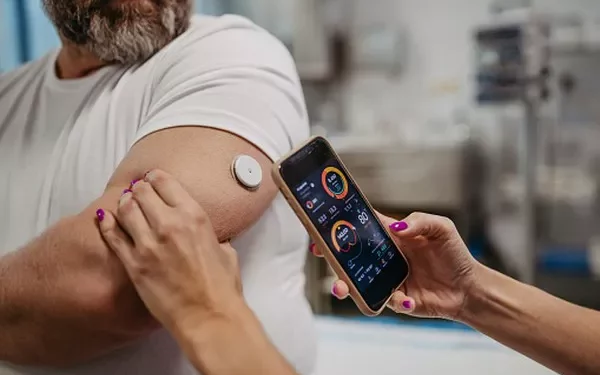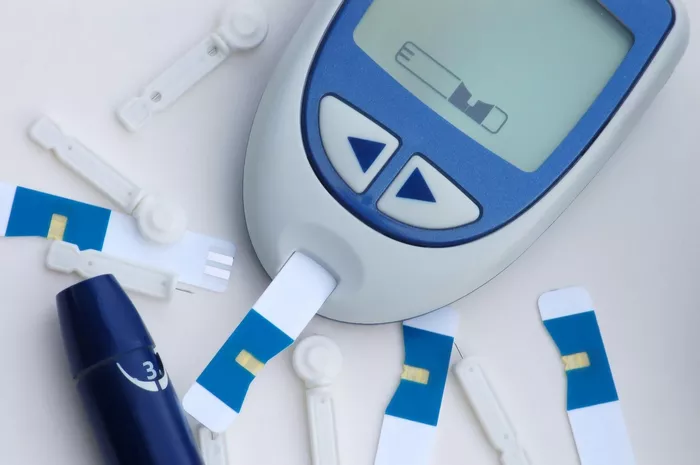Hemoglobin A1c (HbA1c) is a key biomarker in the management of diabetes, reflecting average blood glucose levels over the past 2-3 months. For individuals with type 1 diabetes, achieving and maintaining a target HbA1c level is crucial for minimizing the risk of complications and optimizing overall health. This article delves into the importance of HbA1c in type 1 diabetes, the recommended target ranges, factors influencing HbA1c levels, strategies for achieving optimal control, and the implications of HbA1c beyond glucose management.
Understanding HbA1c in Type 1 Diabetes
HbA1c is formed when glucose binds to hemoglobin in red blood cells. The level of HbA1c reflects the average concentration of glucose in the blood over time. For individuals with type 1 diabetes, who have an autoimmune condition that destroys insulin-producing beta cells in the pancreas, maintaining optimal glucose control is challenging and requires meticulous management.
In type 1 diabetes, insulin therapy is essential for controlling blood glucose levels. Regular monitoring of HbA1c provides a comprehensive picture of how well glucose levels have been managed over time. It helps assess the effectiveness of diabetes management strategies and guides adjustments to insulin therapy and other aspects of care.
Recommended Target HbA1c Levels for Type 1 Diabetes
The American Diabetes Association (ADA) and the International Society for Pediatric and Adolescent Diabetes (ISPAD) provide guidelines for target HbA1c levels in type 1 diabetes. These recommendations aim to balance the benefits of tight glycemic control with the risks of hypoglycemia (low blood sugar) and other complications.
ADA Recommended Target: For most adults with type 1 diabetes, the ADA recommends an HbA1c level of less than 7.0% (53 mmol/mol). This target is intended to reduce the risk of long-term complications while minimizing the risk of severe hypoglycemia.
ISPAD Recommended Target: For children and adolescents with type 1 diabetes, the ISPAD suggests a slightly lower target range of between 6.0% to 7.0% (42 to 53 mmol/mol). This range aims to balance the benefits of tighter control with the risk of hypoglycemia, which can be more pronounced in younger individuals.
These targets may be adjusted based on individual circumstances, including age, duration of diabetes, presence of complications, and the risk of hypoglycemia. For some individuals, especially those who are older or have multiple health conditions, a slightly higher HbA1c target may be appropriate to avoid frequent low blood sugar episodes.
The Importance of Achieving Target HbA1c Levels
Maintaining HbA1c within the recommended target range is essential for several reasons:
Reduction in Complications: Lower HbA1c levels are associated with a reduced risk of developing diabetes-related complications, such as retinopathy (eye damage), nephropathy (kidney disease), neuropathy (nerve damage), and cardiovascular disease. Studies, including the Diabetes Control and Complications Trial (DCCT), have demonstrated that intensive glycemic control significantly decreases the incidence of these complications.
Improved Quality of Life: Achieving target HbA1c levels helps stabilize blood glucose levels, which can alleviate symptoms such as fatigue, excessive thirst, frequent urination, and mood swings. Stable glucose levels contribute to an improved overall quality of life and daily functioning.
Long-term Health Benefits: Effective glycemic control helps preserve long-term health by minimizing the impact of chronic hyperglycemia (high blood sugar) on various organs and systems. This can enhance longevity and overall well-being.
Factors Influencing HbA1c Levels in Type 1 Diabetes
Several factors can impact HbA1c levels in individuals with type 1 diabetes, making it important to consider these variables when managing blood glucose:
Insulin Therapy: The type and regimen of insulin therapy—whether using multiple daily injections (MDI) or an insulin pump—affect blood glucose control. Adjusting insulin doses based on blood sugar readings, meal plans, and activity levels is crucial for maintaining optimal HbA1c levels.
Diet and Nutrition: Carbohydrate intake, meal timing, and the overall quality of the diet play significant roles in blood glucose management. Carbohydrate counting and understanding the glycemic index of foods help match insulin doses with food intake and prevent glucose fluctuations.
Physical Activity: Regular exercise improves insulin sensitivity and aids in glucose regulation. However, physical activity can also lead to changes in blood glucose levels, necessitating adjustments in insulin doses or carbohydrate consumption.
Monitoring and Adjustments: Frequent self-monitoring of blood glucose (SMBG) or using continuous glucose monitoring (CGM) systems provides real-time data that informs decisions about insulin dosing and other aspects of diabetes management.
Lifestyle Factors: Stress, illness, hormonal changes, and the use of medications other than insulin can affect blood glucose levels and HbA1c. These factors must be managed to maintain stable glucose control.
Strategies for Achieving Optimal HbA1c Control
Achieving and maintaining an optimal HbA1c level involves a multifaceted approach that includes medical management, self-care practices, and regular healthcare consultations:
Personalized Treatment Plan: Work with your healthcare team to develop an individualized diabetes management plan. This plan should consider your specific needs, lifestyle, and treatment goals.
Regular Monitoring: Monitor blood glucose levels frequently using SMBG or CGM devices. Regular monitoring helps identify patterns and make necessary adjustments to insulin therapy, diet, and lifestyle.
Insulin Management: Follow prescribed insulin regimens carefully, including adjusting doses based on blood glucose levels, carbohydrate intake, and physical activity. Use insulin-to-carbohydrate ratios and correction factors to fine-tune insulin dosing.
Healthy Eating: Adopt a balanced diet that includes a variety of nutrient-dense foods. Focus on whole grains, lean proteins, fruits, vegetables, and healthy fats while limiting processed foods and added sugars.
Physical Activity: Incorporate regular physical activity into your routine. Aim for a combination of aerobic exercises (such as walking or cycling) and strength training to improve insulin sensitivity and overall fitness.
Education and Support: Participate in diabetes education programs and seek support from healthcare professionals, diabetes educators, and support groups. Education and peer support can enhance your understanding of diabetes management and provide practical strategies for achieving optimal control.
Implications of HbA1c Beyond Glycemic Management
Beyond its role in assessing glucose control, HbA1c levels can provide insights into other aspects of health and diabetes management:
Cardiovascular Health: Lowering HbA1c levels is associated with a decreased risk of cardiovascular disease. Improved glucose control can help manage blood pressure, cholesterol levels, and reduce the risk of heart attacks and strokes.
Pregnancy and Diabetes: For women with type 1 diabetes, maintaining optimal HbA1c levels before and during pregnancy is crucial for reducing the risk of maternal and fetal complications. Good glycemic control helps prevent issues such as pre-eclampsia, macrosomia (large birth weight), and preterm birth.
Quality of Care: Regular HbA1c testing allows healthcare providers to evaluate the effectiveness of treatment plans, monitor adherence to therapy, and make necessary adjustments to optimize diabetes management.
See also: What Do Type 1 Diabetics Die From?
Conclusion: Striving for Optimal HbA1c in Type 1 Diabetes
Achieving and maintaining target HbA1c levels is a cornerstone of effective type 1 diabetes management. By adopting a comprehensive approach that includes personalized treatment plans, regular monitoring, healthy lifestyle choices, and ongoing support, individuals with type 1 diabetes can reduce the risk of complications and enhance their overall quality of life.
Consulting with healthcare professionals, staying informed about advancements in diabetes care, and actively participating in self-management practices empower individuals to maintain optimal HbA1c levels and achieve long-term health goals. With a commitment to continuous improvement and support, managing type 1 diabetes effectively remains a realistic and attainable objective.
Related topics:
What Do Type 1 Diabetics Have to Do?



























